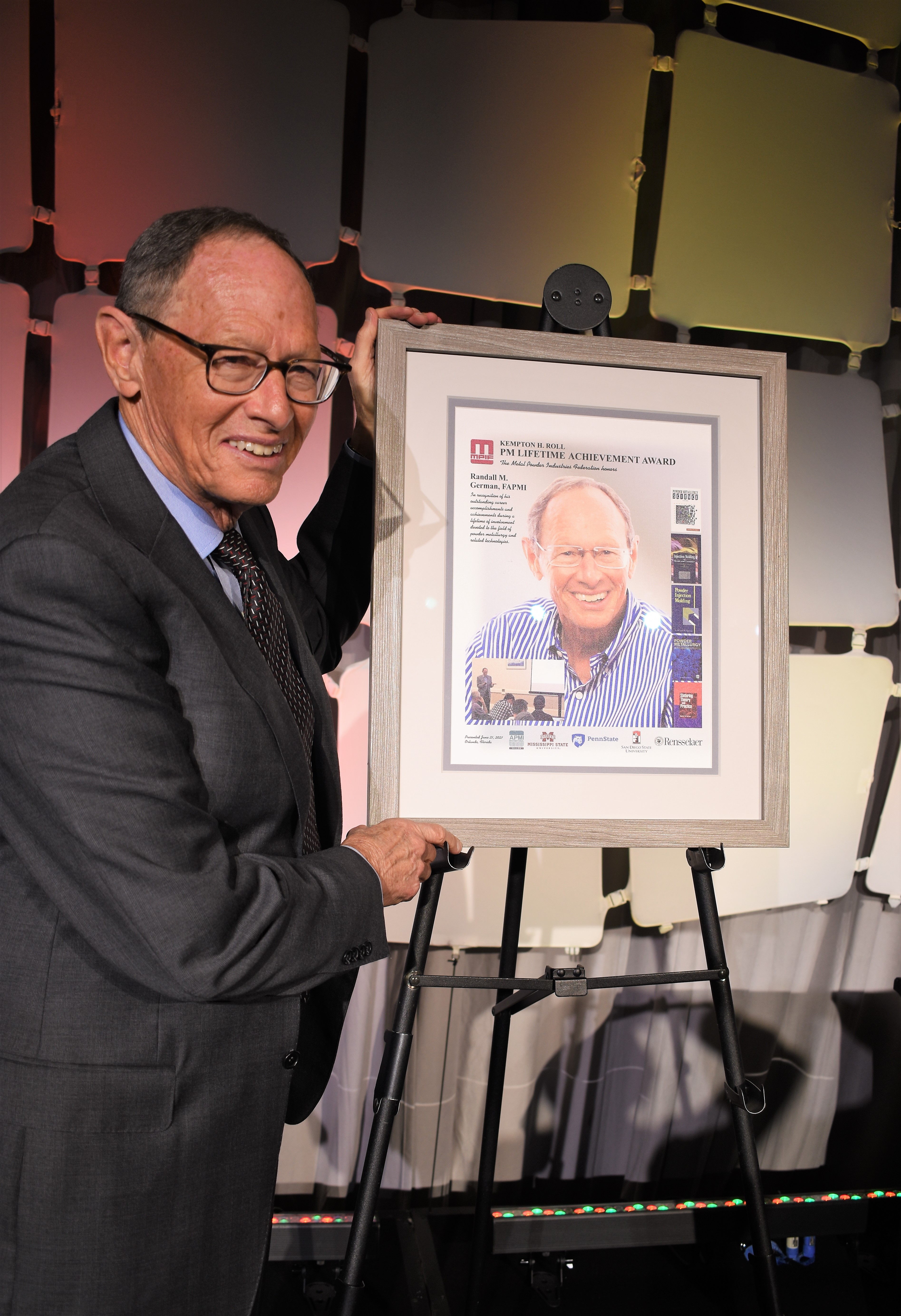
Dr Randall German, founder of German Materials Technology, has been selected to receive the Kempton H Roll Powder Metallurgy (PM) Lifetime Achievement Award by the MPIF.
According to the MPIF, Dr German was recognized for his research and teaching in the field of net-shape fabrication of engineering materials via sintering techniques as used in PM, cemented carbides, and ceramics. He has promoted the growth of PM technology during his 50-year career through his involvement in 12 start-up companies, supervising well over a hundred graduate and post-doctoral students, and publishing a number of PM industry publications. Dr German has also been an active member in APMI International, the American Society for Metals, and the American Ceramics Society.
After completing his bachelor’s degree in material science and engineering at San José State University, Dr German began his PM industry career at Battelle Lab, Columbus, Ohio, prior to joining Sandia National Labs (SNL). In 1991, he accepted a position at The Pennsylvania State University where he became the Brush Chair Professor in Materials and the director of the Center for Innovative Sintered Products (CISP) before retiring as an emeritus professor. In 2005, Dr German became the inaugural director for the Center for Advanced Vehicular Systems (CAVS) at Mississippi State University prior to joining San Diego State University in 2008 as associate dean for engineering research until 2013. Dr German has published 20 books and has 25 patents. He has been involved in powder injection molding tutorials since 1990, and co-chaired over 30 conferences.
Dr German received the MPIF Distinguished Service to PM Award in 1993 and was one of the first APMI members to be awarded the prestigious APMI International Fellow Award in 1998.
This story uses material from the MPIF, with editorial changes made by Materials Today. The views expressed in this article do not necessarily represent those of Elsevier.





